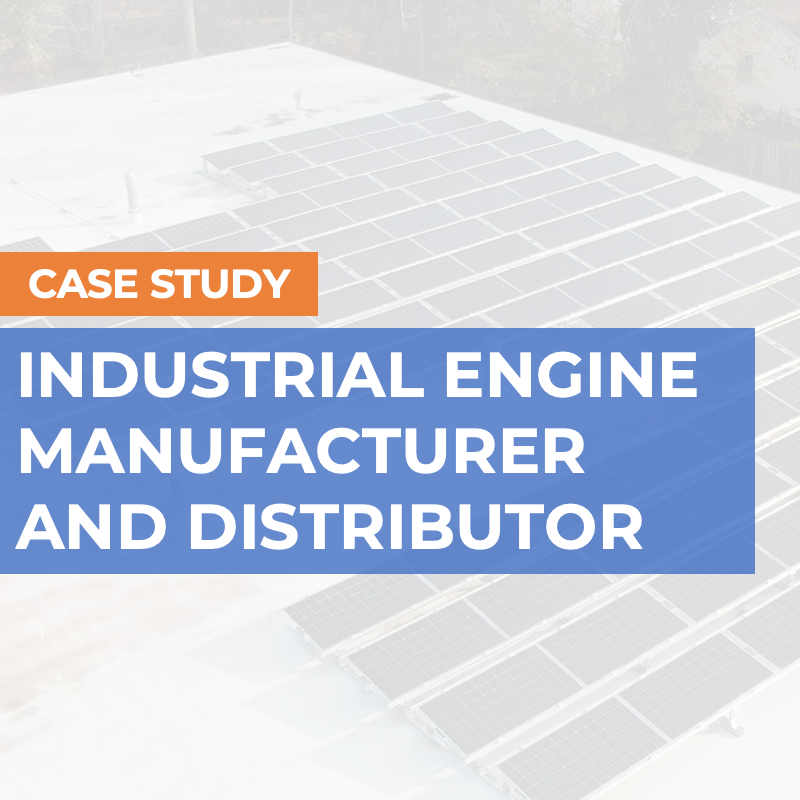NEW JERSEY SOLAR INCENTIVES
The Garden State is going solar with these incentives
New Jersey is one of the best states in the country for solar power. The state offers a number of incentives to encourage businesses to switch to solar, including a rebate program and tax credits. New Jersey also has a Renewable Portfolio Standard, which requires utilities to source a certain percentage of their power from renewable sources like solar. As a result of these policies, New Jersey has seen a boom in commercial solar installations in recent years. Businesses are realizing that solar is a cost-effective way to power their operations, and the state is quickly becoming a leader in clean energy.
Solar Renewable Energy Certificates (SRECs) Registration Program
New Jersey’s Renewable Portfolio Standard (RPS) includes a carve-out for solar, requiring the each electricity Load Serving Entities (LSEs) to provide at least 4.1% of the electricity through in-state solar installations by 2028. Solar projects installed in New Jersey that are registered with the SREC Registration Program are qualified to generate Solar Renewable Energy Certificates (SRECs). SRECs represent the renewable attributes of solar generation, bundled in minimum denominations of one megawatt-hour (MWh) of production.
| Energy Year | SACP($/MWh) |
| 2008-2009 | $711 |
| 2009-2010 | $693 |
| 2010-2011 | $675 |
| 2011-2012 | $658 |
| 2012-2013 | $641 |
| 2013-2014 | $339 |
| 2014-2015 | $331 |
| 2015-2016 | $323 |
| 2016-2017 | $315 |
| 2017-2018 | $308 |
| 2018-2019 | $300 |
| 2019-2020 | $293 |
| 2020-2021 | $286 |
| 2021-2022 | $279 |
| 2022-2023 | $272 |
| 2023-2024 | $266 |
| 2024-2025 | $260 |
| 2025-2026 | $253 |
| 2026-2027 | $250 |
| 2027-2028 | $239 |
Successor Solar Incentive (SuSI) Program
The SuSI Program implements the Clean Energy Act of 2018 (L. 2018, c.17) and the Solar Act of 2021 (L. 2021, c. 169). The SuSI Program provides incentives to eligible solar facilities to continue development of solar renewable energy throughout the state.
The SuSI Program is made up of two programs:
- Administratively Determined Incentive (ADI) Program provides administratively set incentives for net metered residential projects, net metered non-residential projects of 5 MW or less, all community solar projects, and, for an interim period, projects previously eligible to seek conditional certification from the Board under Subsection.
- Competitive Solar Incentive (CSI) Program will provide incentives for grid supply projects and net metered non-residential projects greater than 5 MW. They are currently designing and working towards a CSI Program with the goal of holding the first solicitation by the end of 2022.
Solar Energy Sales Tax Exemption-
New Jersey offers a full exemption from the state’s sales tax for all solar energy equipment. This exemption is available to all taxpayers. All major types solar energy equipment, including equipment for passive solar design, are considered eligible for the exemption as described by the New Jersey Division of Taxation Publication S&U-6 (Sales Tax Exemption Administration).
PSE&G – Solar Loan Program-
Public Service Electric and Gas (PSE&G) of New Jersey, the largest utility in the State, offers loans for “behind the meter” photovoltaic (PV) systems to all customer classes in its electric service territory. The current program provides loans which typically cover 40-60% of the cost of PV systems with the remainder to be paid for or financed separately by the customer. Loans are only available to systems of 5,000 kW DC or less that are eligible for net metering and to generate Solar Renewable Energy Certificates (SRECs) under New Jersey State regulations.
Property Tax Exemption for Renewable Energy Systems-
In order to claim the exemption, property owners must apply for a certificate from their local assessor which will reduce the assessed value of their property to what it would be without the renewable energy system. Exemptions will take effect for the year after a certification is granted. The incentive amount if for 100% of value added by renewable system.
Edison Innovation Clean Energy Manufacturing Fund – Grants and Loans-
The Edison Innovation Clean Energy Manufacturing Fund (CEMF) is intended to provide assistance for the manufacturing of energy efficient and renewable energy products that will assist Class I renewable energy and energy efficiency technologies in becoming competitive with traditional sources of electric generation.
Project Assessment and Design Grants (Tranche I): The CEMF will provide a grant of up to $300,000 for costs associated with site assessment, procurement, and design of an eligible facility. Qualified Tranche I costs may include identifying and securing a project site and obtaining the necessary permits and regulatory approvals. The grant may not exceed 10% of the total amount of funding requested for the project as a whole. Twenty percent of the grant is available up front at the time of closing.
Project Construction and Operation Loan (Tranche II): A maximum $3 million is available in the form of a ten-year loan at an interest rate of 2% to support site improvements, equipment purchases, facility construction and completion. Repayments begin at the start of the fourth year following the close of the loan. Projects that meet certain milestones may be eligible to convert up to $1 million of the loan into a performance grant.
Pay for Performance Program-
The New Jersey Clean Energy Program (NJCEP) offers the Pay for Performance incentive program for comprehensive energy efficiency for whole-building improvements. In order to qualify for the Existing Buildings program, commercial and industrial buildings must have a peak demand of kilowatt (kW) of at least 200 kW in any of the most recent last months.
Assessment of Farmland Hosting Renewable Energy Systems-
The land must be part operating farm for the current year and have been part of an operating farm during the preceding year.
The power and heat generated by the system must generally, but not exclusively, be used to serve farm energy needs.
A conservation plan must be filed with and approved by the conservation district.
For solar energy systems, the property under the panels must be used to the greatest extent practical for shade crops, pasture, or grazing.
The ratio land devoted to energy production to land devoted to agricultural operations may not exceed 1:5 acres (i.e., maximum 1 acre devoted to energy production for every 5 acres devoted to agricultural operations).
Facilities are limited in size to the lesser of 10 acres or 2 megawatts (MW) of generating capacity.
For biomass generation, the property owner must obtain approval from the New Jersey Department of Agriculture.
Edison Innovation Green Growth Fund Loans-
The Edison Innovation Green Growth Fund (EIGGF), administered by the New Jersey Economic Development Authority, offers loans to for-profit companies developing Class I renewable energy (as defined under state renewables portfolio standard) and energy efficiency products.
Up to $1.25 million for fixed assets, or up to $750,000 for working capital for a term of up to 10 years, with the option of either a fixed or variable below-market interest rate.
The EIGGF offers loans up to $2 million with a performance grant component to support technology companies with Class I renewable energy or energy efficiency products or systems that have achieved “proof of concept” and successful independent beta results, have begun generating commercial revenues, and will receive 1:1 match funding by time of loan closing.
Local Energy Audit Program-
The program is targeted towards buildings owned by local governments, New Jersey State Colleges and Universities, and 501 (c)(3) non-profit agencies. The buildings may include, but not limited to offices, courtrooms, town halls, police and fire stations, sanitation buildings, schools and community centers. The payment for the audit can be made directly to the audting firm or to the applicant. Maximum incentive amount is limited to $100,000 per entity per year
Large Energy Users Program
Large Energy Users program offers financial incentives to eligible large commercial and industrial facilities in the State to self-invest in energy efficiency and combined heat and power (CHP) projects. The program offers financial incentives based on projected energy savings at $0.33 per projected kWh saved annually and $3.74 per projected Therm saved annually. Maximum incentives are capped per entity lesser of:
$4 million
75% of total project costs as identified in FEEP
90% of total NJCEPP fund contributed in previous fiscal year
It Pay$ to Plug in Program-
It Pay$ to Plug In is a program that provides grants to offset costs associated with purchasing and installing electric vehicle charging stations. Private residential dwellings besides multi-unit dwellings are not eligible for these grants. All other applicants, including businesses, governments, educational institutions, and non-profit organizations, are eligible to receive grants.
Incentive Amount:
Public charging stations: Up to 100% costs (government) or 80% of costs (private)
Workplace charging stations: Up to 60% of costs
Multi-unit dwelling charging stations: Up to 60% of costs
Corridor charging stations: Up to 100% of costs (government) or 80% of costs (private)
Maximum Incentive:
Level 1 EVSE: Up to $750
Level 2 EVSE: Up to $4,000
DCFC: Up to $200,000 per location (2 port minimum)
Successor Solar Incentive (SuSI) Program-
The SuSI Program is made up of two sub-programs:
Administratively Determined Incentive Program
The ADI Program provides incentives for net metered residential projects, net metered non-residential projects of 5 MW or less, all community solar projects, and, for an interim period, projects previously eligible to seek conditional certification from the Board under Subsection (t). The interim market segment is blocked for 75 MW, while net-metered residential, net-metered non-residential, and community solar (LMI and Non-LMI) is blocked for 150 MW.
| Market Segment | System Size (MW-DC) | Incentive Values ($/SREC-II) | Public Entities ($20 Adder) |
| Net-Metered Residential | All Sizes | $90 | N/A |
| Net-Metered Non-Residential located on rooftop, carport, canopy, and floating solar | Smaller than 1 MW
1 MW – 5 MW |
$100
$90 |
$120
$110 |
| Net-Metered Non-Residential ground mount | Smaller than 1 MW
1 MW – 5 MW |
$85
$80 |
$105
$100 |
| Community Solar LMI | Up to 5 MW | $90 | N/A |
| Community Solar Non-LMI | Up to 5 MW | $70 | N/A |
| Interim Subsection (t) Grid | All Sizes | $100 | N/A |
Competitive Solar Incentive Program
This program will provide competitively set incentives for grid supply projects and net metered non-residential projects greater than 5 MW.









